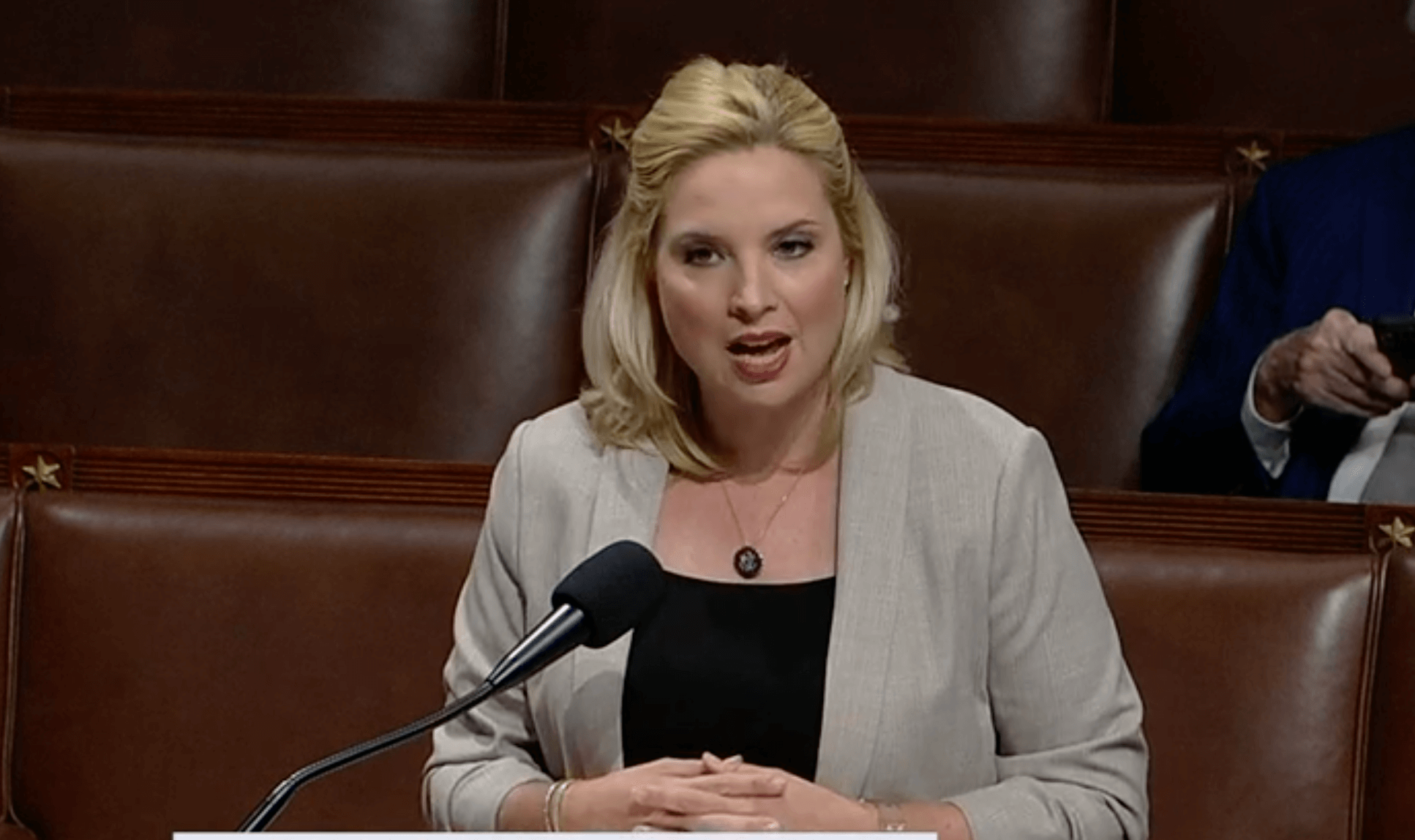
Ashley Hinson knew she was going to take a bad vote.
When the Right to Contraception Act came to the floor of the US House of Representatives on Thursday, Iowa Republican Rep. Hinson voted ‘no.’
The bill passed 228-195, with only eight Republicans signing on, none of them from Iowa.
Hinson voted against protecting Americans’ ability to access contraceptives and to use them, and to protect a provider’s ability to provide the contraceptives and information about contraception. Concerns over what rights the Supreme Court could restrict next drove Democrats to introduce the legislation.
Hinson knew she would do it, so before saying no, she tried to save face by introducing her own bill, the Allowing Greater Access to Safe and Effective Contraception Act.
[inline-ad id=”0″]
“I rise today to present a reasonable solution to a challenge that millions of American women face – access to birth control,” she said on the floor, then explaining her own legislative alternative to the Democratic bill.
“My amendment would require the FDA to give priority review for over-the-counter access to routine-use oral contraceptives that the agency has already deemed safe for women aged 18 and up,” Hinson continued.
And that’s pretty much all it does.
The rather brief bill calls on the Secretary of Health and Human Services to speed up any applications to the FDA for oral contraceptive drugs to make them available over the counter. It also has a provision saying that rules against buying multiples should not apply to oral contraceptives.
[inline-ad id=”1″]
Emergency contraceptives such as Plan B are explicitly excluded, and this over-the-counter access only applies to adult women, with no mention of the thousands of teenagers who use birth control pills for things like managing menstruation and/or acne, as well as those who use it to avoid pregnancy.
In 1977, the Supreme Court ruled minors have a constitutional right to obtain contraceptives, and states can’t require parental consent.
“My colleagues across the aisle give you a whole lot of lip service about supporting women. They claim that their policies, no matter how far outside the mainstream, are the only way to support women,” Hinson said. “That’s just not true Madame Speaker.”
And yet, she voted against a bill which would protect women’s and others’ access to more than oral birth control, in the event the Supreme Court overturns Griswold v. Connecticut and throws out the principle that the Constitution ensures a right to privacy that prevents states from outlawing the use of contraception.
[inline-ad id=”2″]
Several governors have suggested they’re open to the idea of outlawing contraception in some way. The bill mentions several of those state attempts to block access to contraception or restrict what kinds people can use.
“My colleagues on the other side of the aisle have offered a bill that I simply cannot support—their bill attacks conscience protections for providers, expands access to abortion pills, and risks women’s health,” Hinson also said.
The Democratic bill, the Right to Contraception Act, would prevent states from outlawing or creating barriers for the use or purchase of contraception. It covers oral contraceptives, as well as other known methods like IUDs, internal and external condoms, patches, vaginal barrier methods and other methods.
The medications used for abortion— mifepristone and misoprostol—are not mentioned. The bill does mention emergency contraceptives.
[inline-ad id=”3″]
A June poll by Gallup showed 92% of Americans called birth control “morally acceptable.”A PRRI poll, conducted right after the Supreme Court decision to overturn abortion, showed about 84% of Americans said they opposed laws restricting what types of birth control can be used to prevent pregnancy.
In several pages, the Democratic Right to Contraception Act explains how contraceptives are essential health care, a key to a person’s self-determination, and a fundamental human right as recognized by the Supreme Court, the United Nations and the World Health Organization.
Nikoel Hytrek
07/22/22
Have a story idea or something I should know? Email me at [email protected]. You can also DM me on Twitter at @n_hytrek.
Iowa Starting Line is part of an independent news network and focuses on how state and national decisions impact Iowans’ daily lives. We rely on your financial support to keep our stories free for all to read. You can contribute to us here. Also follow us on Facebook and Twitter.
[inline-ad id=”4″]
Politics

Biden marks Earth Day by announcing $7 billion in solar grants
The Biden administration on Monday announced the recipients of its Solar For All Program, a $7 billion climate program that aims to lower energy...

6 terrifying things that could happen if the Comstock Act is used to target abortion
Does 1873 sound like a really, really long time ago? Well, that’s because it is—but if Republicans and far-right anti-abortion activists have their...
Local News

No more Kum & Go? New owner Maverik of Utah retiring famous brand
Will Kum & Go have come and gone by next year? One new report claims that's the plan by the store's new owners. The Iowa-based convenience store...

Here’s a recap of the biggest headlines Iowa celebs made In 2023
For these famous Iowans, 2023 was a year of controversy, career highlights, and full-circle moments. Here’s how 2023 went for the following Iowans:...





